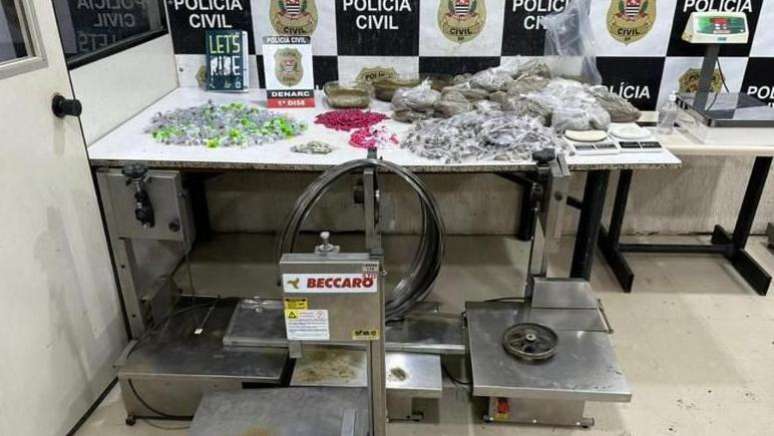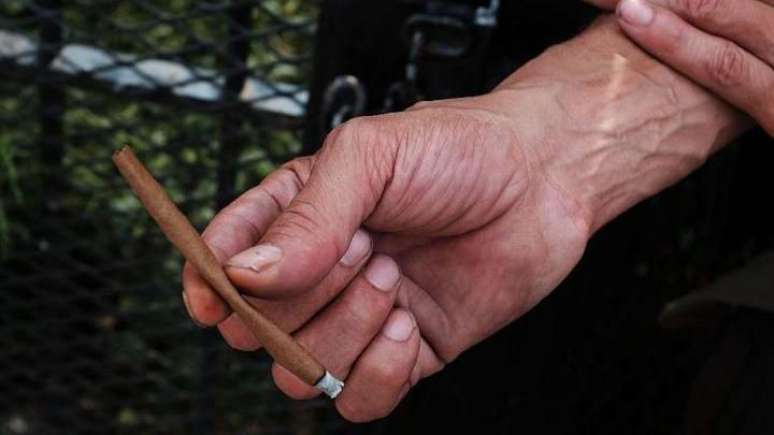The issue returned to Congress after the Federal Supreme Court resumed the trial on the decriminalization of marijuana possession; analysts see the ‘clash’ as expected
The Constitution and Justice Committee (CCJ) of the Senate approved this Wednesday (15/3) a proposed amendment that could include in the Constitution that both possession and possession of drugs, even for personal consumption, become a crime.
This is already provided for in the Drugs Act 2006, but the intention of parliamentarians is to implement a regulation that is superior to that of a law. Today the topic is not present in the Magna Carta and is only addressed in infraconstitutional laws, such as the Penal Code.
To be approved, the Proposal to Amend the Constitution (PEC) will also have to go through two rounds of voting in the Senate plenary, then move to the Chamber, where it will also be examined by the CCJ, the special commission and another two votes within the Chamber . plenary before moving on to presidential sanction. There are no dates yet for these subsequent phases.
There was no nominal vote count, but four senators registered votes against the text: Marcelo Castro (MDB), Fabiano Contarato (PT), Jaques Wagner (PT) and Humberto Costa (PT).
This CCJ vote is the first step for the measure to be approved in plenary before the STF finalizes its ruling on marijuana possession. Today, possession and possession of drugs are already prohibited, as per the 2006 Drugs Act, but this could be changed in an ongoing trial in the Federal Supreme Court (STF).
This advancement of the drug PEC in the Senate is seen by politicians, lawyers and analysts interviewed by BBC News Brasil as a “counterattack” on Congress to try to block the STF’s authorization of marijuana possession — even though experts indicate that The amendment’s passage in the Legislature may not end the debate in the Supreme Court.
STF x Congress

Launched nine years ago and paralyzed by calls for a review, when a minister asked for more time to analyze an issue, the case was brought back to court last week.
This once again put the STF on a collision course with a powerful part of the National Congress: the conservative group in Parliament led, largely, by the Evangelical Parliamentary Front.
So far there are five votes in favor and three against in the Court to implement some degree of decriminalisation, with only one vote left to form the majority.
The process, however, was interrupted by a third request for an opinion, this time made by Minister Dias Toffoli, with the votes of three ministers still pending. Toffoli has up to three months to bring the case back to plenary.
The interruption does not seem to have cooled the spirits in Congress, where the parliamentarians of the evangelical bench, with the support of the president of the Senate, Rodrigo Pacheco (PSD-MG), are mobilizing to approve the PEC.
According to political scientist Cláudio Couto, professor at the Fundação Getúlio Vargas (FGV), this counterattack by Congress was already expected.
According to him, the controversy would be part of a process that political science has called “politicization of justice” or “judicialization of politics”.
In this dynamic, he explains, the criticism is that the judiciary would use its powers to legislate in place of Parliament.
“For some time there has been intense discussion as to whether or not the STF has invaded the competence of the Legislative Power,” explains Couto.
Even if the issue is already being examined by the Supreme Court, deputies and senators also address the issue because legislating on criminal matters is the responsibility of Parliament, as is voting on changes to the constitutional text.
The PEC was presented by the President of the Senate, Rodrigo Pacheco (PSD-MG), in September 2023, as a response to the resumption of the STF vote on that occasion.
The text was brought to the CCJ of the Chamber and, in a new moment of resumption of the case before the Court, it returned to the agenda of the collegium this Wednesday (13).
The text under discussion inserts in Article 5 of the constitutional text that “the law will criminalize the possession and possession, regardless of the quantity, of narcotics and similar drugs without authorization or in disagreement with legal or regulatory determination”.
The proposal also provides that “a distinction be made between drug dealers and consumers, providing for the latter with alternative sanctions to prison and addiction treatment”. It is not yet clear what criteria will be used to make this distinction.
Furthermore, with the modification of Article 5, in practice, the new rule will fall within the scope of the protection of immutable clauses, i.e. articles of the Constitution that cannot be abolished or subject to restrictions, not even through another modification via the PEC .
If Congress approves the amendment to the Constitution, it must be valid for the future – for cases after its entry into force.
It is also possible that the amendment prepared by the parliamentarians will also be questioned in the Supreme Court, and the case will return to be debated in the Court.
Source: Terra
Rose James is a Gossipify movie and series reviewer known for her in-depth analysis and unique perspective on the latest releases. With a background in film studies, she provides engaging and informative reviews, and keeps readers up to date with industry trends and emerging talents.







